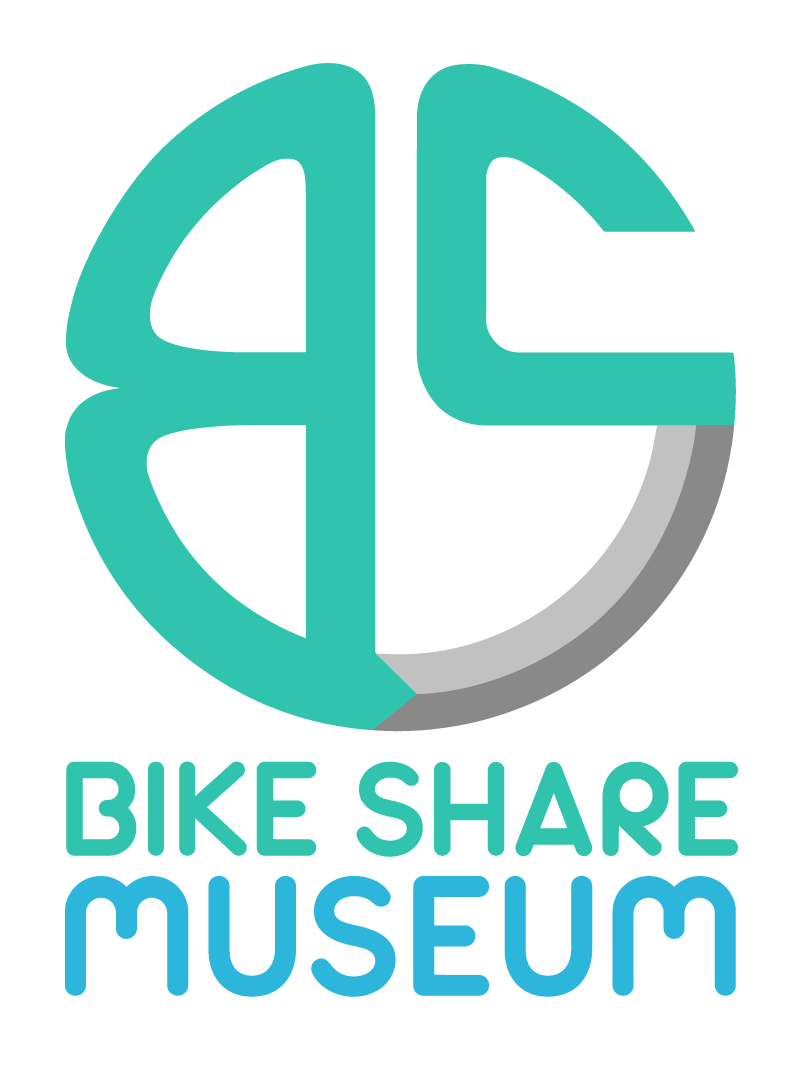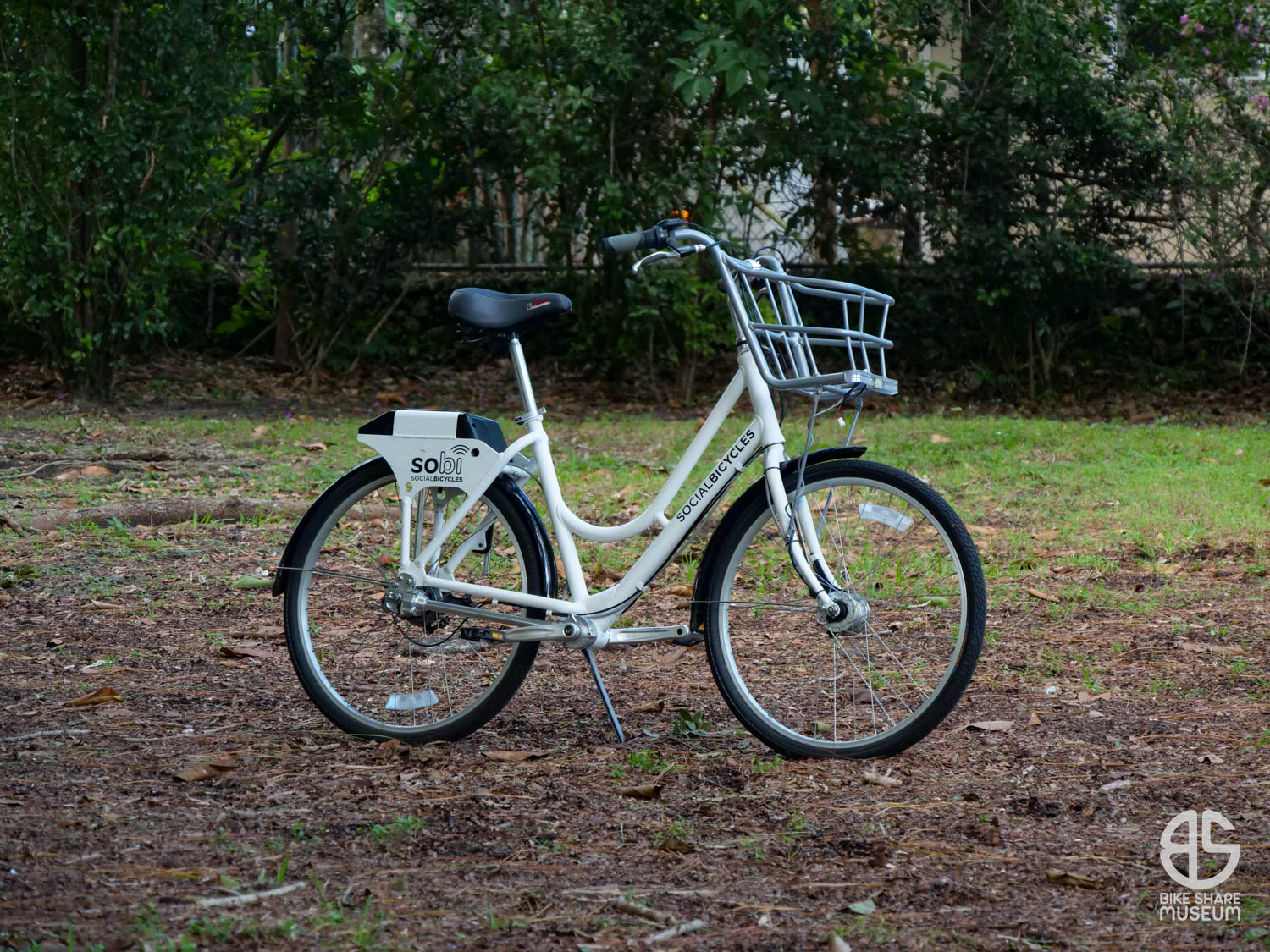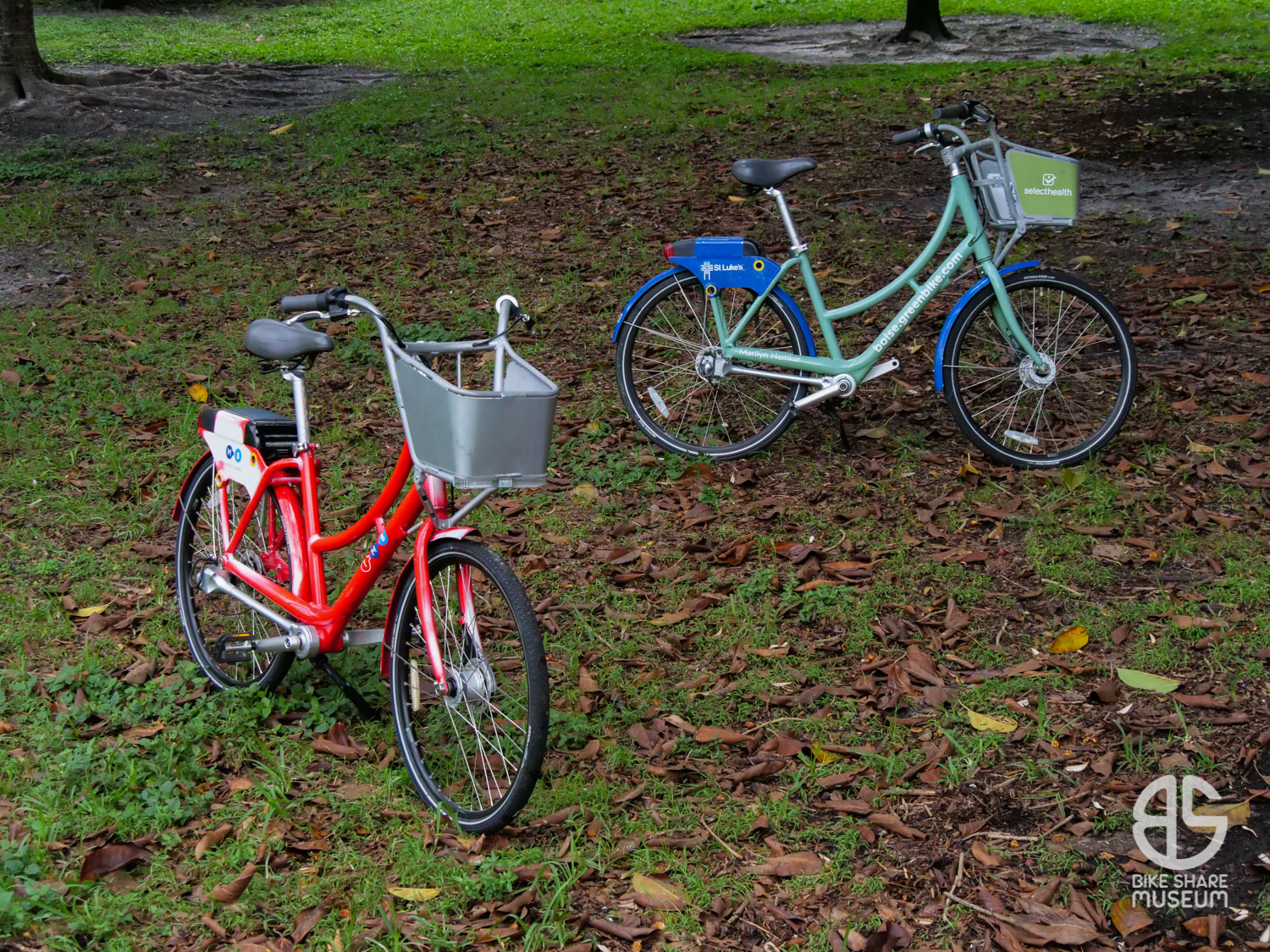Social Bicycles #SB1107039
2011 Social Bicycles 1.0
Specsheet
Gallery


















Bicycle Bio
The 1.0, as its name suggests, is the very first share bike designed by US-based Social Bicycles and the genesis for all future generations of share bike designs under the SoBi name, including – if indirectly so – the current Lime Gen 4 (or 6.0, in SoBi parlance) e-bike.
As the first rental bike to carry a dedicated GPS/GSM tracking system onboard, the 1.0 holds the title of the first dockless/lock-to micromobility vehicle to offer direct vehicle tracking and seamless rentals through a smartphone or from the bike itself, putting it a step ahead of Deutsche Bahn’s Call-A-Bike, the only other wireless rental system prior to SoBi’s system.
Approximately 60 1.0’s were produced between the earliest prototypes and the final design. The 1.0’s vary only in minor details, mostly in the design of the basket and the basket’s support stays to the fork.
Though the 1.0 may appear very similar at first glance to the later, prolific 3.0 and 3.5 models (as used by BikeTown PDX, SoBi Hamilton, and a significant list of others) it is different in almost every way; an example of perfecting a design over small, but significant adjustments in the pursuit of perfection.
The 1.0’s uniqueness starts at the frameset. It is the only Social Bicycles model ever to use a threaded headset and quill stem, accounting for the “J” shaped top-tube that would become exclusive to the 1.0. By the time the brief 2.0 model came to fruition, the frameset had already undergone its design transformation that would lead to the iconic 3.0: Threadless headset, full loop frame with a split downtube, one-piece bar and stem, and a huge 27.5cm (10.8″) headtube performing the job of the quill stem.



Social Bicycles used the 1.0 as the company’s introduction to the market throughout 2012, launching in the summer of 2013 in Hoboken, New Jersey – presumably with 25 bikes in the fleet, though the actual numbers have been difficult to pin down.
The story becomes a bit complicated as another batch (also said to be ~25) debuted at the University of Buffalo’s North and South Campus in June 2013, as part of what was known at the time as Buffalo BikeShare. Now, if Buffalo BikeShare doesn’t sound familiar to you, it’s because it was the demonstration program that led to the launch of the current Reddy BikeShare program in 2016.
This pilot program was a success, and expanded in early 2014 with the addition of new SoBi 2.0’s – a model that would be exclusive to the Buffalo program and San Francisco International Airport.
At some point in time, the Hoboken pilot ended. At this point, a portion of the 1.0’s were ultimately sold to their last operator to-date in Sun Valley, Idaho. Dave Fotsch, director of the nearby Boise GreenBike system, shared this with us:
The [Idaho] system was run by Mountain Rides and was called 5B-Bikeshare. 40 bikes. 20 in Ketchum and 20 in Hailey. System went dark at least two years ago. (Ed note: Two years ago = 2018)
Former CEO of Social Bicycles, Ryan Rzepecki, explains further:
…the Hoboken bikes were eventually shipped to Sun Valley for expansion. So [a bike’s operational history] could be both [operators]!
Even with this trail of the 1.0’s history, this particular 1.0 never made it to Sun Valley. While it isn’t 100% confirmed, it is theorized that this 1.0 was one of the originals used as a SoBi in-house demonstrator for both Hoboken and Buffalo and never formally deployed. Eventually, it got lost along the way and inexplicably wound up in another operator’s west coast warehouse.

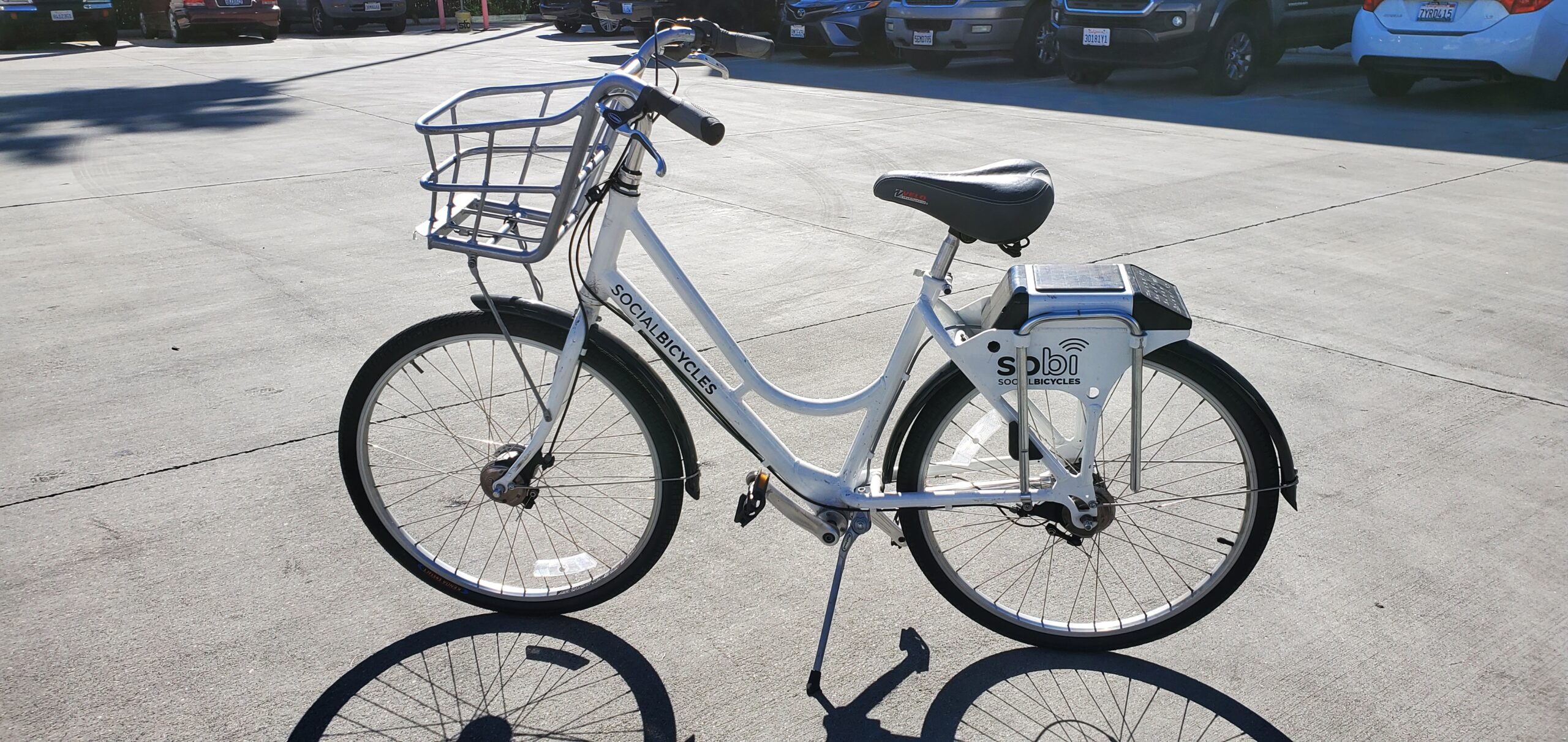
Photos – Miguel Alcala. Used with permission.
 Luckily, repair tech Tim Wilcox – while assisting with the closure of the warehouse – realized the 1.0 was something unusual, saved it from their scrap pile, and donated it to the Museum.
Luckily, repair tech Tim Wilcox – while assisting with the closure of the warehouse – realized the 1.0 was something unusual, saved it from their scrap pile, and donated it to the Museum.
With the help of bike collector Miguel Alcala, the 1.0 was picked up and shipped to the Museum via our shipping partners at BikeFlights.com, who helped arrange the 1.0’s return to the east coast here at the Museum. The 1.0 has been built up once again, polished up, and short of missing its original headlight fixture – is exactly as it was when it helped launch the very start of Social Bicycles’ history.
